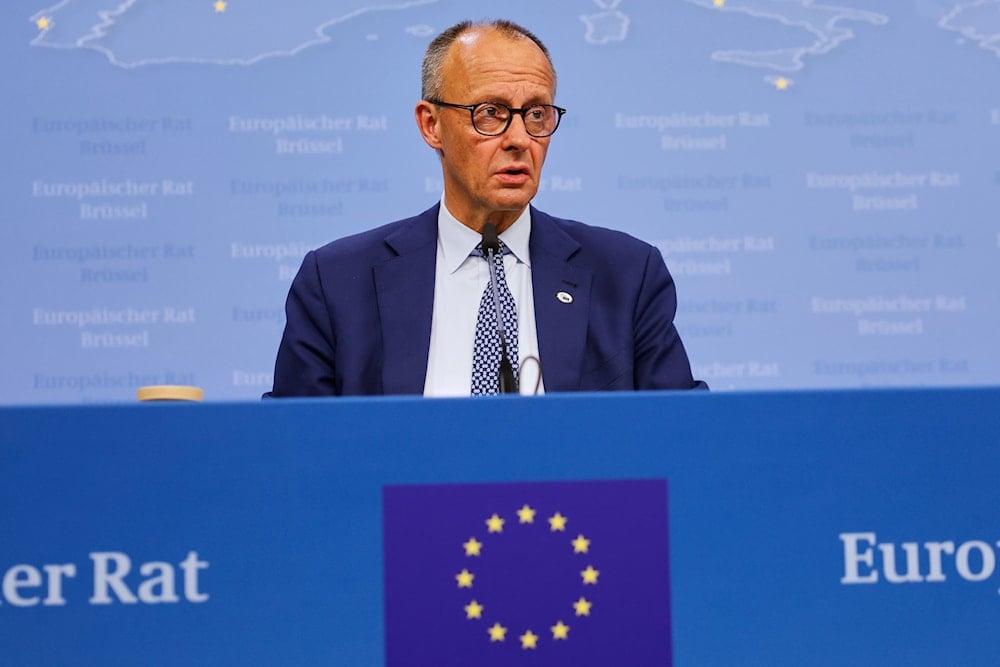Germany opposes EU's €2T budget plan as talks start
Germany cites national budget concerns amid upcoming negotiations for its decision to oppose.
-

Germany's Chancellor Friedrich Merz speaks during a media conference at an EU summit in Brussels, Thursday, June 26, 2025 (AP)
Germany has opposed the European Commission’s €2 trillion ($2.3 trillion) budget proposal, shortly after it was unveiled by European Commission President Ursula von der Leyen in Brussels.
“A comprehensive increase in the EU budget is unacceptable at a time when all member states are making considerable efforts to consolidate their national budgets,” the German government's chief spokesman stated, adding, “We will therefore not be able to accept the commission’s proposal.”
The EU’s largest member state has rejected the proposal, signaling a tough negotiation ahead for the bloc’s executive arm as it seeks support for its next seven-year budget, set to begin in 2028.
After intense negotiations that ran late into Tuesday night and resumed Wednesday morning, the European Commission unveiled its draft proposal earlier that day, outlining a budget of €1.98 trillion, a significant increase from the previous €1.2 trillion allocation (equivalent to 1% of EU output) set for the 2021-2027 cycle.
The draft plan includes a 590 billion euro fund for competitiveness, prosperity, and security, with 451 billion euros specifically allocated to support European companies in remaining competitive against global rivals.
Defense spending flames EU budget debate
EU budget discussions remain highly divisive as the bloc struggles to balance conflicting priorities ranging from agricultural subsidies to development funds for less wealthy member states.
The current proposal setting the EU's 2028-2034 spending priorities carries heightened significance as the bloc seeks to up its defense spending and enhance competitiveness amid economic challenges posed by the US and growing competition from China. A report by ex-ECB chief Mario Draghi last year highlighted an annual EU investment shortfall of 800 billion euros.
The existing multiannual budget funds approximately 50 EU programs spanning research to energy initiatives, while being mainly funded through member state contributions, where wealthier nations serve as net donors to the collective pool.

 2 Min Read
2 Min Read








